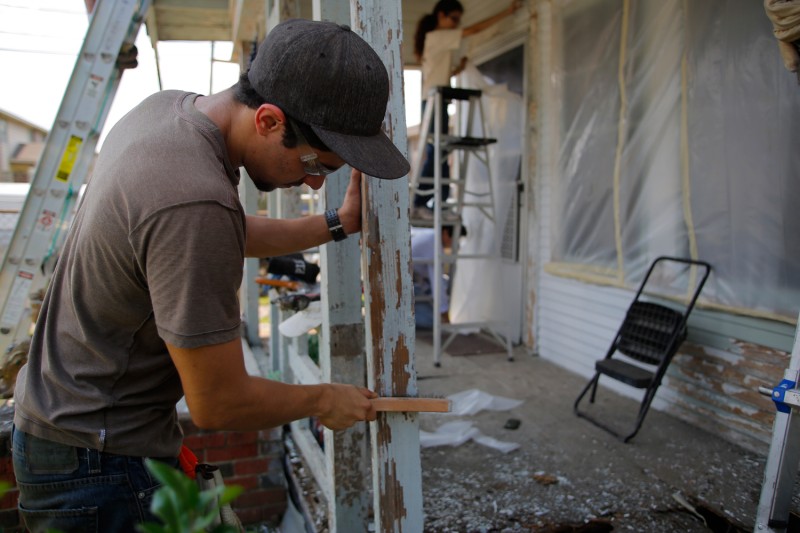I’m always stunned by the mess kids can make. Give them 30 minutes alone in a room, and the destruction they cause in mind-boggling. There I stand, with four pairs of eyes staring up at me, thinking, “I don’t know whether to cry or laugh. This is incredible.” My next thought is always, “How in the world will I clean this up? Where do I begin?”
This same question haunts every church planter. The needs of the city are immense. The pain of brokenness due to sin are palpable. Where do you begin? How in the world does a church plant hope to make a difference among such vast need?
You can’t do everything, but you can do something.
Any attempt to quickly clean up the mess is doomed for failure. You will grow discouraged when it seems that everything you try to do only uncovers more mess. We all wish we could make a long-term difference in a city in an afternoon. But that is rarely possible. We have to remember that even though we can’t do everything, we can do something. Much like the kid’s room, I can’t snap my fingers and get everything into the right place. But, I can give marching orders: “Son, you clean up the marbles. You take the puzzle pieces. You take the baby doll heads. And, well, I’ll get the finger nail polish you spilled all over the floor.” Over time, with intentionality and effort, these incremental steps at cleaning up the room make a massive difference.
So it is with church planting. You can’t do everything overnight. You will kill yourself if you try. But, you can do something. And, you can partner with other faithful churches who are seeking to make a difference as well. In time, our work can make a lasting difference.
Long-term vision, short-term action
In order for church planters to shape the culture of a city, they have to have a long-term vision. Rarely, does systemic change happen quickly. The needs of our cities did not develop overnight, and they are not likely to change quickly either (at least not until Jesus returns). Church planters should consider their work in terms of decades, not weeks. In three decades, what would we like to see our city look like? At the end of my ministry, what do we hope changes because our church is here?
Our answers to these questions allow us to reverse engineer a plan to take short-term action. Based on the long-term change we’d like to see; we prayerfully develop a plan to take baby steps toward that goal. Perhaps our long-term outcome is to see racial unity in our city. What short-term steps could we take toward that goal? Seek out a pastor of another ethnicity and begin praying together…Attend city events where varying races are likely to converge…Create a joint event with a sister church that fosters racial unity. The list could go on and on. What’s important is that we do something.
God’s ongoing work
Thankfully, in God’s common grace, He has been at work in our cities long before our churches arrived. The cities in the U.S. have had some form of gospel witness for longer than we’ve been alive. Yes, the church might seem to be languishing in our day. Yes, there may be far fewer believers than we’d desire. Yes, there may be an oppressive amount of pain and brokenness. But, rest assured—God is at work.
Faithful church planters seek to discern God’s ongoing work in the city and find ways to fan that work into flame. This may mean partnering with other churches or believers who are intent on bringing kingdom on earth as it is in heaven. It may also mean partnering with secular organizations, many of whom may not have God’s kingdom in mind, but who are nevertheless doing work that addresses pockets of darkness in the city. Whether it’s organization working to eliminate poverty, care for single moms, or fight to curb violence, every city has change agents already embedded in the culture. God’s common grace allows savvy missionaries to link arms with these organizations and expedite the change they are both seeking. It also provides a wonderful tool for church planters to point these organizations, and those they serve, to the broader hope offer through the gospel of Jesus Christ.
Church planter, don’t lose heart. God is at work, even when you can’t see it. Your small steps of faithfulness multiplied by the awe-inspiring work of a great God, can have a lasting difference in the cities we call home.
Published August 16, 2016
